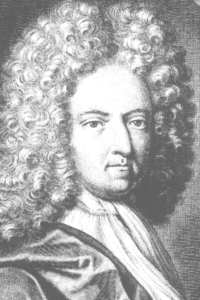Dengie Hundred in 1722
In 1722 Daniel Defoe undertook a journey
through East Anglia starting on the Thomas and working his way
through Eastern Essex.

Defoe remarks on the wildfowl
, the oysters and the number of wives that die from the Essex ague.
His thoughts are shown below.
From
hence there is nothing for many miles together remarkable but a
continued level of unhealthy marshes, called the Three Hundreds,
till we come before Leigh, and to the mouth of the River Chelmer,
and Blackwater
In
this inlet of the sea is Osey, or Osyth Island, commonly called Oosy
Island, so well known by our London men of pleasure for the infinite
number of wild fowl, that is to say, duck, mallard, teal, and
widgeon, of which there are such vast flights, that they tell us the
island, namely the creek, seems covered with them at certain times
of the year, and they go from London on purpose for the pleasure of
shooting; and, indeed, often come home very well laden with game.
But it must be remembered too that those gentlemen who are such
lovers of the sport, and go so far for it, often return with an
Essex ague on their backs, which they find a heavier load than the
fowls they have shot.
On
this shore also are taken the best and nicest, though not the
largest, oysters in England; the spot from whence they have their
common appellation is a little bank called Woelfleet, scarce to be
called an island, in the mouth of the River Crouch, now called
Crooksea Water; but the chief place where the said oysters are now
had is from Wyvenhoe and the shores adjacent, whither they are
brought by the fishermen, who take them at the mouth of that they
call Colchester water and about the sand they call the Spits, and
carry them up to Wyvenhoe, where they are laid in beds or pits on
the shore to feed, as they call it; and then being barrelled up and
carried to Colchester, which is but three miles off, they are sent
to London by land, and are from thence called Colchester oysters.
The
chief sort of other fish which they carry from this part of the
shore to London are soles, which they take sometimes exceeding
large, and yield a very good price at London market. Also
sometimes middling turbot, with whiting, codling and large
flounders; the small fish, as above, they sell in the country.
At
this place may be said to end what we call the Hundreds of
Essex—that is to say, the three Hundreds or divisions which include
the marshy country, viz., Barnstable Hundred, Rochford Hundred, and
Dengy Hundred.
I
have one remark more before I leave this damp part of the world, and
which I cannot omit on the women’s account, namely, that I took
notice of a strange decay of the sex here; insomuch that all along
this country it was very frequent to meet with men that had from
five or six to fourteen or fifteen wives; nay, and some more.
The reason, as a merry fellow told me, who said he had about a dozen
and a half of wives (though I found afterwards he fibbed a little)
was this: That they being bred in the marshes themselves and
seasoned to the place, did pretty well with it; but that they always
went up into the hilly country, or, to speak their own language,
into the uplands for a wife. That when they took the young
lasses out of the wholesome and fresh air they were healthy, fresh,
and clear, and well; but when they came out of their native air into
the marshes among the fogs and damps, there they presently changed
their complexion, got an ague or two, and seldom held it above half
a year, or a year at most; “And then,” said he, “we go to the
uplands again and fetch another;” so that marrying of wives was
reckoned a kind of good farm to them. It is true the fellow
told this in a kind of drollery and mirth; but the fact, for all
that, is certainly true; and that they have abundance of wives by
that very means.
Nor
is it less true that the inhabitants in these places do not hold it
out, as in other countries, and as first you seldom meet with very
ancient people among the poor, as in other places we do, so, take it
one with another, not one-half of the inhabitants are natives of the
place; but such as from other countries or in other parts of this
country settle here for the advantage of good farms; for which I
appeal to any impartial inquiry, having myself examined into it
critically in several places.
From
the marshes and low grounds being not able to travel without many
windings and indentures by reason of the creeks and waters.



